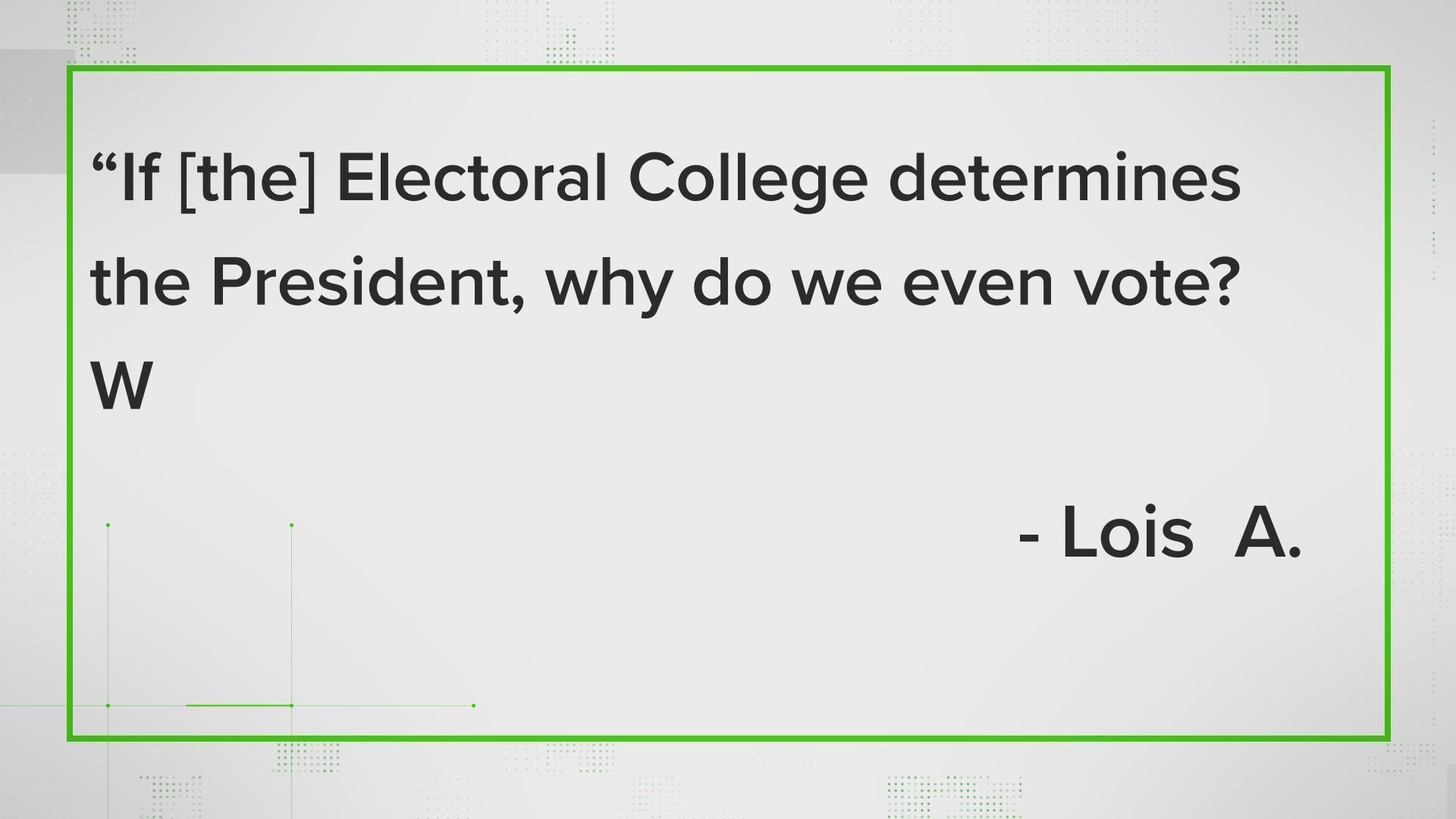ATLANTA — It's a question that comes up, understandably, in any tight presidential race: Do Electoral College voters actually have to vote for the candidate who won their state?
There are a number of laws governing how Georgia proceeds with its contribution to the Electoral College we'll run through, but the short answer is basically: No, there's nothing in law that requires them to vote any which way.
And yes, this is an issue that has come up before.
Let's start with the basics of how the Electoral College works in Georgia: By state law, the political parties nominate their 16 electors (because Georgia has 16 Electoral College votes) ahead of the presidential election.
Then, according to law, it's the governor's responsibility to certify the slate of electors submitted by the party whose candidate received the most votes. Here's the actual language of the law: "The Governor shall enumerate and ascertain the number of votes for each person so voted and shall certify the slates of presidential electors receiving the highest number of votes."
The governor must certify the list of electors "no later than 5:00 P.M. on the eighteenth day following the date on which such election was conducted."
Because those electors are chosen by the political parties, and the political parties are inclined to choose active members of the party to do the electoral voting as a kind of nod of respect, it's usually not an issue of who they'll vote for.
But you'll notice we haven't addressed any piece of law stating how they have to vote - because there is none.
In theory, if they're on the list of electors submitted by the party, and that party's candidate gets the most votes for president in Georgia, and the governor certifies that list - they're then free to do whatever they want.
And this, in fact, became an issue in 2016.
Baoky Vu, a member of the Georgia Republican Party's list, took exception to President Trump's public sparring with the family of a Muslim soldier killed during the Iraq War.
He reportedly said he could not vote for Trump, threatening an act that would have branded him what's popularly known as a "faithless elector."
However he said even before the election, and wound up resigning as an elector. He did not cast an electoral vote, and all of Georgia's electoral votes were cast for the president.
But, again, the answer to the question is: Yes, an electoral voter could, if they wished, vote against the candidate who actually won the state.

